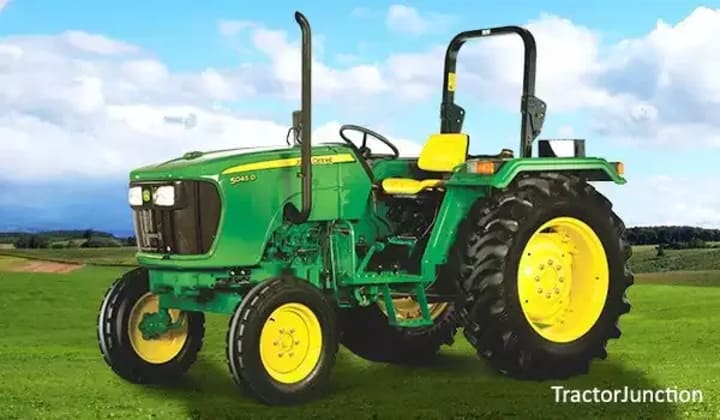Jowar Farming in India: Total Guide
Jowar Farming in India: Total Guide

Jowar, also known as Sorghum is a major crop in India. It is a staple food for many people and an important source of fodder for livestock. Maharashtra, Karnataka, Andhra Pradesh, and Tamil Nadu are the states that are majorly practicing Jowar farming. Drought-prone regions are best for jowar agriculture. It ranks as the third most important crop after rice and wheat in India. Jowar plays an important role in food security.
In recent years, Jowar has become a highlight, and now, people who are opting for a healthy lifestyle prefer jowar over wheat for pieces of bread. Let's learn more about Jowar Farming, Cultivation and Market Value.

Climate and Soil
Jowar is a crop that thrives in different climatic conditions. Let’s learn more about the climate and soil conditions for Jowar farming in India.
Climate
Jowar flourishes in warm climatic conditions. The ideal temperature for Jowar farming is 25°C to 32°C, and rainfall must be between 400-750.
Soil
Diverse soil conditions can suit Jowar farming. It requires moderate water compared to other crops. Sandy to loamy soils with a PH range of 5.5 to 8.5 are ideal for Jowar farming.
Types of Jowar
Jowar is a major crop in India, and there are multiple 60 + varieties available in the market. These varieties depend on many factors like grain size, yield quality, and the purposes for which they are required, such as fodder, grain, etc.
Kharif: These varieties of jowar are ideal for drought areas, and they include cross varieties like CSH14, CSH16, etc
Rabi: These varieties are ideal for sowing in moisture-containing soil during the post-monsoon season. They include varieties like CSV 14R and M 35-1, etc.
Cultivation Process For Jowar Farming
Soil Preparation
Jowar crops require well-drained soil for plantation. The soil preparation process involves ploughing, harrowing, and levelling the soil to create a fine tilth. Tractors are used to plough the field at a depth of 15-20 cm to remove unwanted weeds and loosen the soil. Multiple harrowings are done to break the soil and create a fine tilth.
In the end, the field levelling is done to ensure uniform irrigation. Tractors play a major role in soil Preparation. If you are looking for a good, durable tractor that can help you with Jowar crop farming-related work, then the John Deere 45 hp can be a good option to consider. These tractors have high backup torque and accelerated productivity for all agricultural applications.
Plantation
Jowar Plantation is traditionally sown by hand using a dibbler. However, now there is machinery available for the same. The exact sowing time depends on the region and variety of jowar, although they are mostly sown from May to July when the monsoon arrives.
Weed and Pest Management
The removal of unwanted weeds from the field is the most important step so that crops can flourish. Crucially, during the initial stage of jowar farming, it is important to remove the weeds from the field to ensure proper crop growth.
Jowar crop is generally resistant to pests and diseases. However, farmers need to be careful and must implement the IPM method to minimise any potential problems in advance.
Fertilization
Jowar crops benefit from organic manure, such as farmyard manure. In some cases, farmers use supplemental inorganic fertilisers based on soil testing. Using too much chemical manure can damage the crop or might result in low yield.
Harvesting
Jowar crops are typically ready between November and January, depending on their variety and maturity. Crop harvesting is done manually using sickles or combine harvesters on large farms. Storage is an important part of harvesting. Therefore, after threshing, cleaning and drying grains to reduce moisture content, they must kept at safe storage levels.
Post-Harvest Uses
Jowar grains are mostly used in various food products like rotis, bhakri or jowar khichdi. Jowar flour has been gaining popularity recently as a gluten-free alternative for health-conscious people. The stalks and leaves of jowar are a valuable source of fodder for livestock.
Market Value
Jowar price in the market keeps fluctuating, which impacts farmer's income. However, value-added products in the market, like jowar flakes, breakfast cereals and gluten-free bakery products, increase the demand for cereal in the market.
A good market establishment for Jowar can benefit farmers and encourage more farmers to cultivate Jowar.
Conclusion
Despite having such high nutritional value, Jowar's yield is lower in India than in other countries. Research on more good variety and better crop management practices can help in addressing these challenges. By adopting innovative cultivation practices, government subsidies can help farmers enhance the productivity and profitability of Jowar farming. Jowar is a versatile and nutritious grain that holds immense potential for Indian agriculture. Moreover, Jowar farming can help farmers create a good market value, and it will also play an important role in India’s agricultural economy.
About the Creator
Rajendra_Singh
I'm a agriculture blogger, who loves sharing my knowledge about growing things. On my blog, you'll find practical tips and interesting stories to help you get started!
Enjoyed the story? Support the Creator.
Subscribe for free to receive all their stories in your feed. You could also pledge your support or give them a one-off tip, letting them know you appreciate their work.






Comments (1)
Thank you for the interesting and delicious content. Follow my story now.